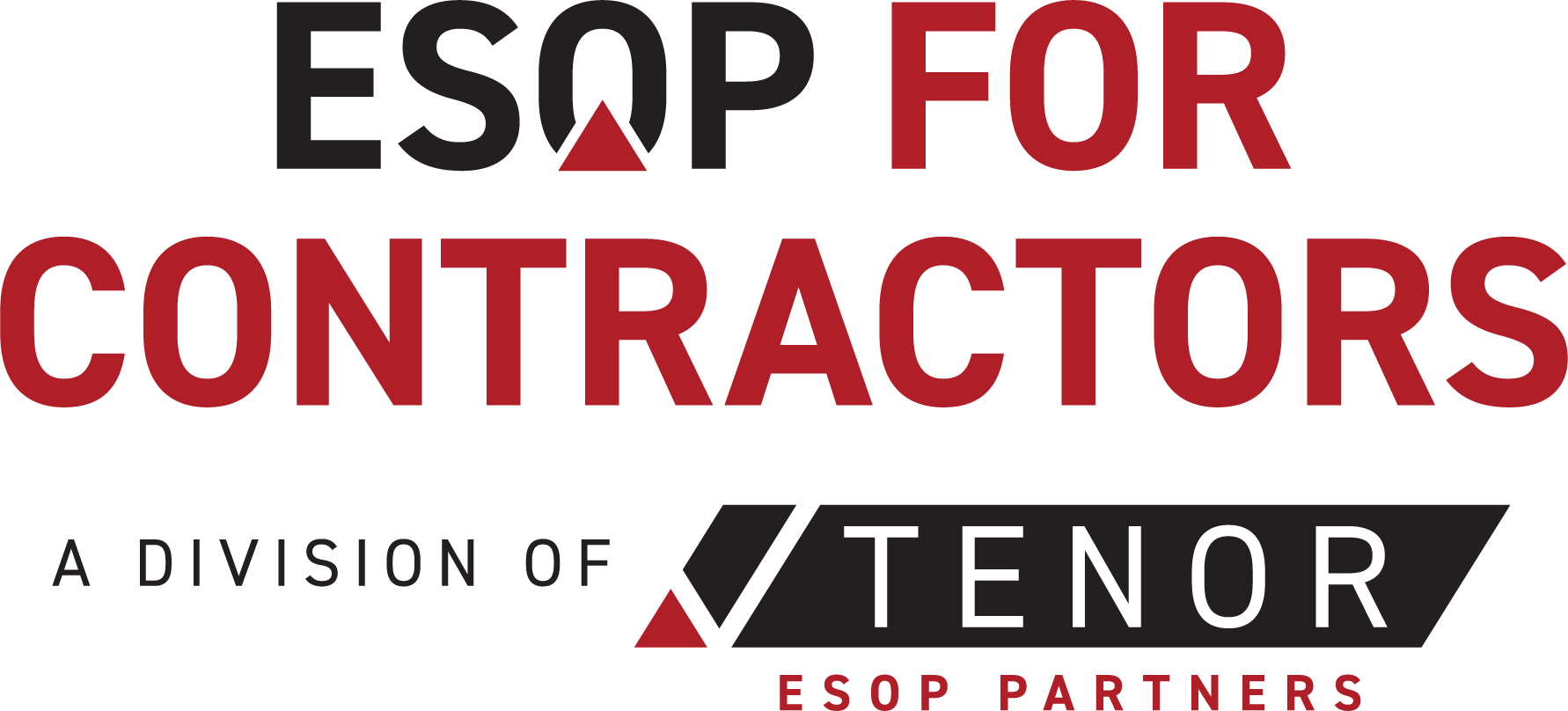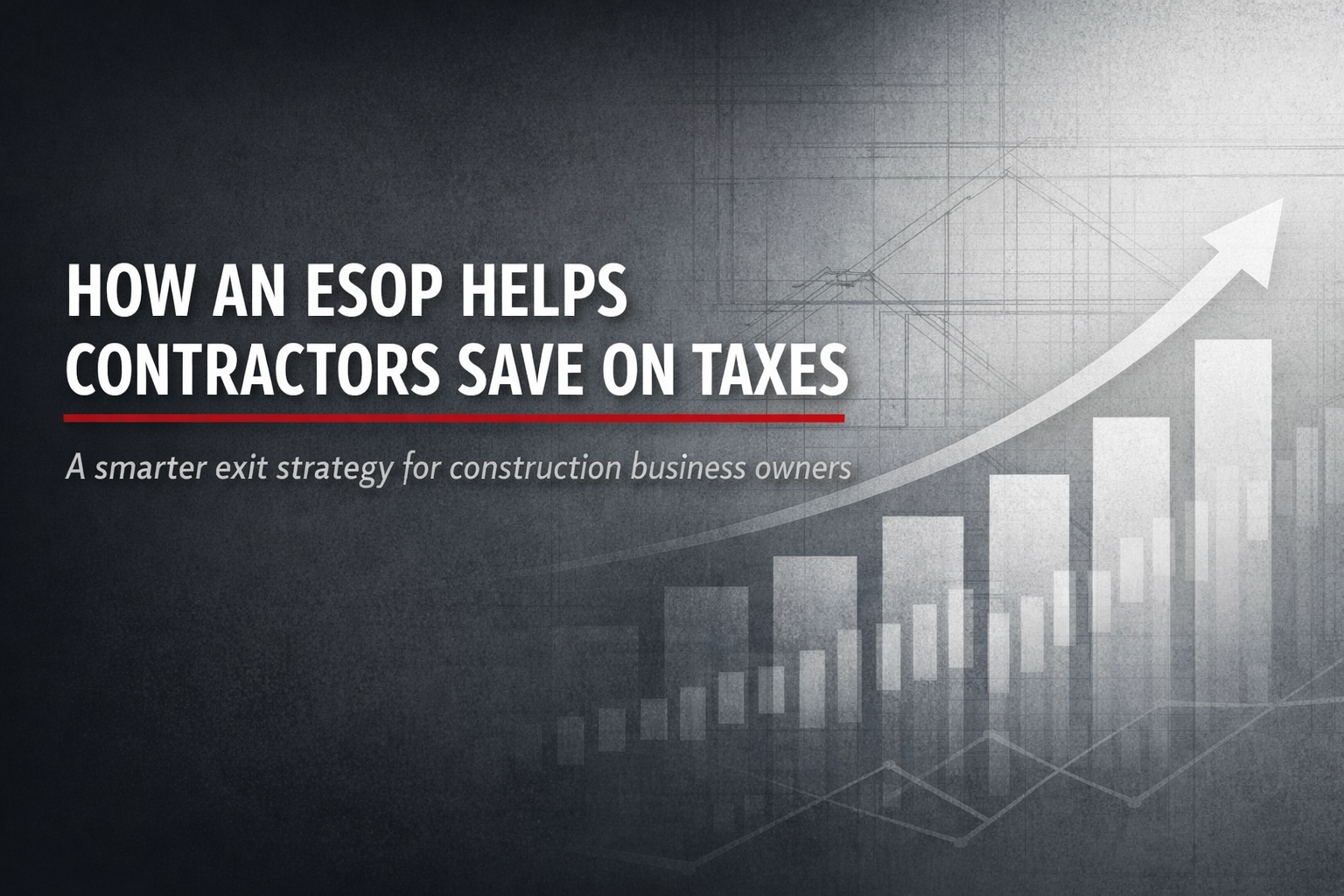Does An ESOP Plan Work for a Seasonal Business?

Here’s a question we hear often, especially from construction, landscaping, and other contractor-led businesses that depend on a seasonal workforce.
Can an ESOP really work for us?
The short answer is yes. Seasonal businesses can absolutely benefit from an Employee Stock Ownership Plan (ESOP). In fact, when designed intentionally, ESOPs can help solve one of the biggest challenges these companies face: keeping good people coming back, year after year.
But the key is understanding what an ESOP really is, and what it’s not.
First, What Is an ESOP?
Just in case you aren’t entirely sure, let’s unpack what an ESOP is and why it can be so beneficial to your contracting business.
At its core, an Employee Stock Ownership Plan (ESOP) is another way to sell your company, one that rewards both the owner and the employees.
Here’s how it works:
- The owner sells the business to a trust
- The company funds the purchase with pre-tax dollars.
- Over time, employees earn shares in the business as they continue to work and contribute.
- The owner receives fair market value for the business while maintaining control of leadership and operations.
When employees retire or leave, they sell their shares back to the company, cashing out their ownership stake.
In short: it’s a succession and growth strategy that transfers ownership to employees over time, creating loyalty, financial rewards, and a stronger sense of commitment to the company’s success.
And for owners, the tax advantages can be substantial. A 100% ESOP-owned company pays no federal income tax, freeing up capital to reinvest in growth, equipment, and people.
Understanding the Concern: Seasonality and Ownership
This all might sound great, but what if you own a company that ramps up in the spring and slows down in the winter? You already know how hard it can be to maintain a consistent team, so does this really make sense?
That’s exactly why many owners initially assume an ESOP wouldn’t fit. After all, employee ownership sounds like something designed for big, year-round corporations, not a business where half the crew might be seasonal.
But that’s not how it works.
ESOPs are flexible by design. They can be structured to account for the realities of a seasonal workforce, rewarding employees who return each year, recognizing hours worked during peak seasons, and creating a path to ownership that builds loyalty over time.
In other words, ESOPs aren’t about whether employees are on the job 12 months a year. They’re about creating a shared sense of ownership and connection to the company’s long-term success.

The Long-Term Benefits of an ESOP for Seasonal Contracting Businesses
It’s important to be clear: an ESOP isn’t a quick fix for turnover or a short-term solution to seasonal challenges. It’s a medium-to-long-term strategy for strengthening the business and the people behind it.
Over time, ESOPs help companies:
- Build loyalty and stability. Returning employees see a real reason to stick with the company - their efforts directly impact their future.
- Attract and retain top talent. In industries where skilled labor is hard to find, employee ownership sets your company apart as a destination for great people.
- Strengthen culture and accountability. When employees know they’re part-owners, they take pride in their work and look out for the business as if it were their own.
For owners, the benefits extend even further. An ESOP allows you to sell your company to a trust, receive fair market value for your shares, and maintain control of day-to-day operations, all while unlocking significant tax advantages.
That’s not a short-term perk; that’s a lasting competitive advantage.
What It Takes for an ESOP To Work Well for Your Business
Like any meaningful business decision, forming an ESOP takes planning, communication, and the right partners to guide the process. It’s not something you implement overnight, but that’s exactly what makes it so effective.
For an ESOP to thrive, everyone needs to understand how it works and why it matters. Employees need to see how ownership builds value over time, not just through a single season. Owners need to think strategically about long-term growth, leadership transition, and culture.
When that alignment happens, the results speak for themselves. Companies report higher engagement, better retention, and stronger financial performance because everyone is working toward the same goal.
The most successful ESOPs in seasonal industries are those that treat employee ownership as a mindset. It’s about cultivating buy-in, pride, and shared success across years rather than just across projects.
Frequently Asked Questions
Q: Do seasonal employees qualify for an ESOP?
Yes. Plans can be designed to include returning employees who meet certain service or hour thresholds. The goal is to recognize long-term commitment, even in a seasonal setting.
Q: Does a business need to be year-round to form an ESOP?
No. The key is consistent operations and profitability, not the calendar. Many successful construction and landscaping ESOPs operate seasonally.
Q: Is an ESOP a short-term fix for turnover?
No. ESOPs are a long-term ownership and retention strategy. They take time to build but the loyalty, performance, and stability they create last for decades.
Q: Does an ESOP work for landscaping businesses?
Absolutely. Landscapers face one of the biggest staffing challenges in the trades: keeping good crews season after season. An ESOP helps create long-term loyalty by turning short-term jobs into long-term opportunities. Employees gain a real stake in the company’s success, which strengthens culture and retention.
Q: Does an ESOP work for concrete businesses?
Yes. Concrete companies are prime candidates for employee ownership. With skilled labor in high demand, ESOPs help attract and retain top talent while giving owners a path to liquidity while remaining in control. The tax advantages of a 100% ESOP-owned company can also provide a strong competitive edge when bidding large projects.










